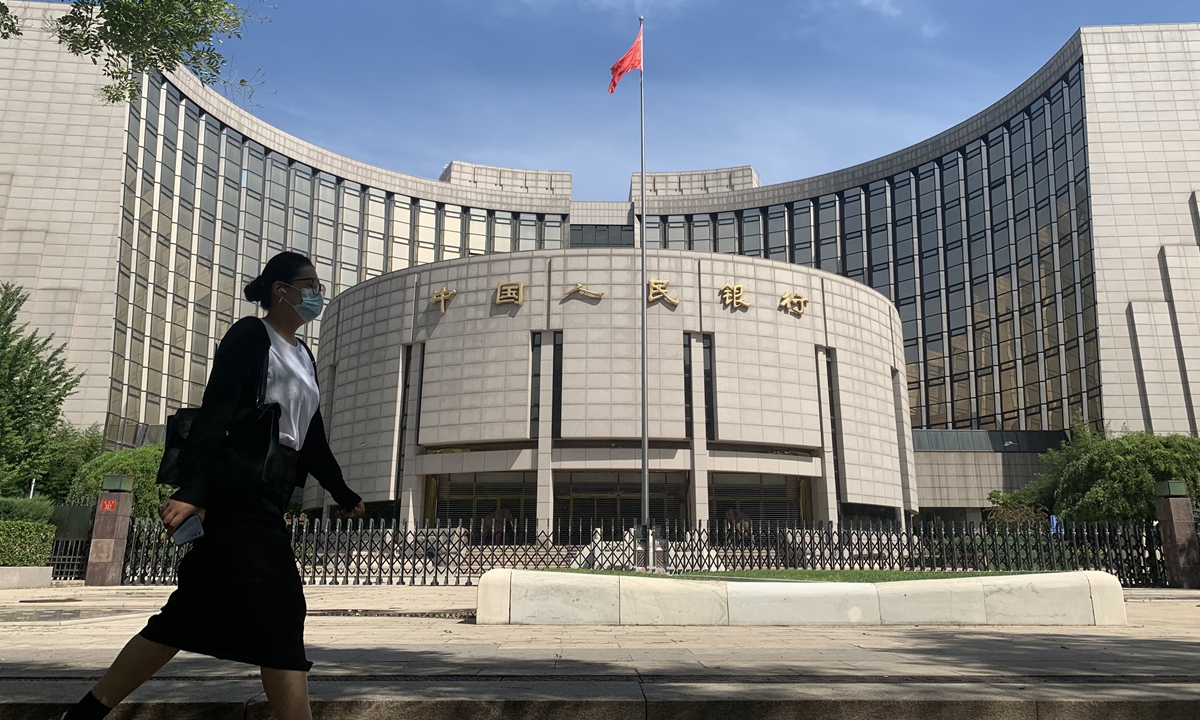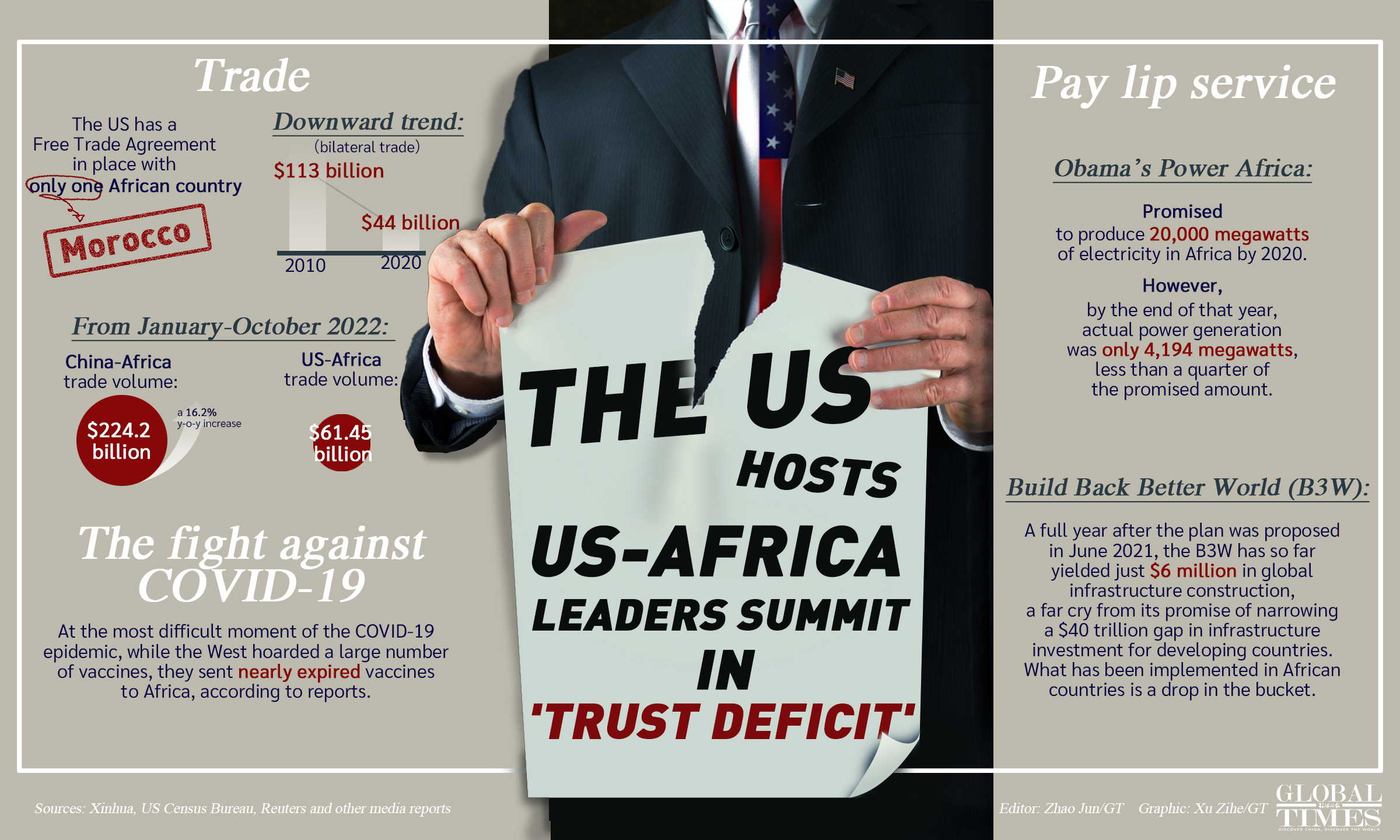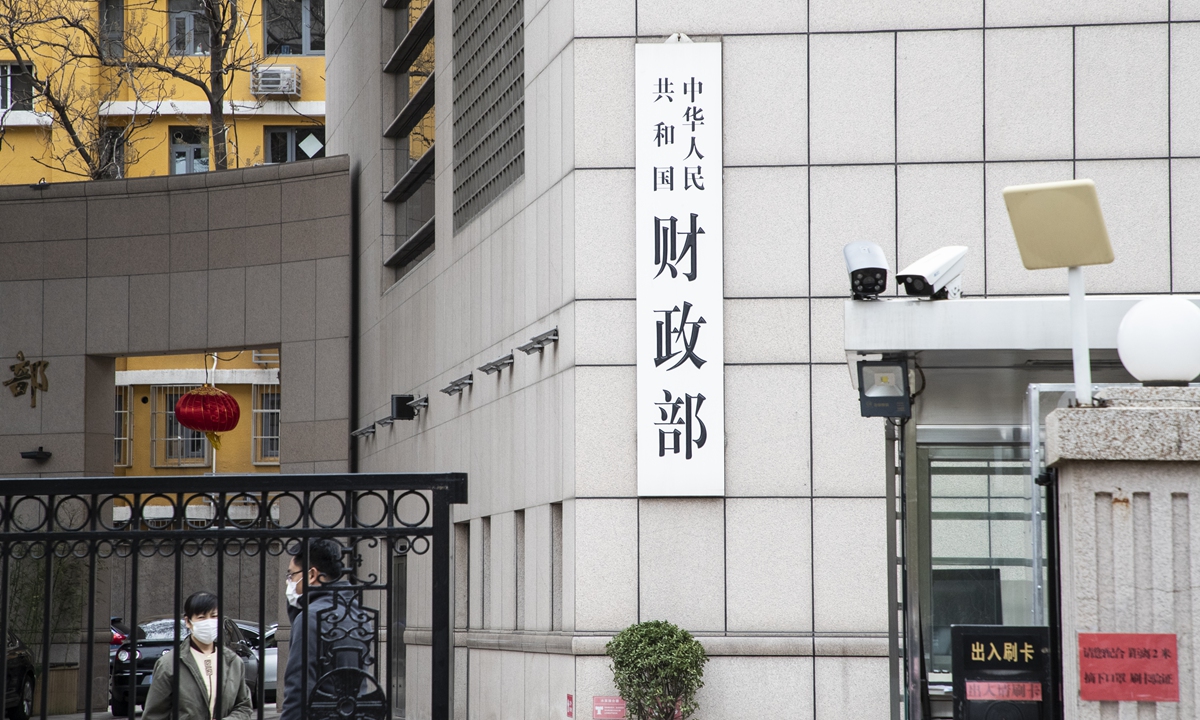China’s central fiscal deficit stays within budgeted range, pointing to policy continuity

A view of the PBC building in Beijing Photo: VCG
China's central fiscal deficit stood at 2.65 trillion yuan ($367 billion) in 2022, basically equal to previous year's budgeted fiscal deficit. Analysts attributed the fiscal deficit control to the continuity of fiscal policy, noting that improving economic governance will further boost sustained recovery of the country's economy and its high-quality development.
The National Audit Office reported the audit results of the central budget implementation and other fiscal revenues and expenditures in 2022 to the Standing Committee of the 14th National People's Congress on Monday.
According to the report, the country's central fiscal revenue reached 10.76 trillion yuan in 2022, up by about 15 percent on a yearly basis. The central fiscal spending was 13.41 trillion yuan, up by about 11 percent year-on-year.
The National Development and Reform Commission manages and allocates central fiscal expenditure worth of 640 billion yuan, which is mainly invested in sectors including grain security, energy security and industrial and supply chain safety, it said.
"The scale of China's central fiscal deficit was well controlled last year, as the central fiscal budget implementation gradually normalized along with the control of the COVID-19 epidemic," Xi Junyang, a professor at the Shanghai University of Finance and Economics, told the Global Times on Monday.
In addition, the central expenditure increased appropriately, as the central government ratcheted up its efforts to stabilize the macroeconomy amid growing internal and external challenges and strengthened investment in key sectors to ensure national security, according to Xi.
Li Changan, a professor at the Academy of China Open Economy Studies of the University of International Business and Economics, told the Global Times that the audit work throughout the year supervises the use of fiscal funds and serves as guidance for the efficient use of government funds.
"The problems identified in the report have negative impact on the formulation of macroeconomic policies and accordingly the country's high-quality development. The audit report has disclosed irregularities, and the proposed suggestion is the implementation of the spirit of last year's Central Economic Work Conference, as well as decisions of a series of key government meetings for the sustained recovery of the economy," Li said.
The auditing work has disclosed problems closely related to people's livelihood and urged immediate rectifications to promote earnest implementation of favorable policies. For example, it exposed problems including how unemployment subsidies were cut, government-owned public rental apartments were illegally mortgaged, some schools illegally charged students and misused their assets, and some regions delayed payments to migrant workers.
In addition, the audit disclosed major potential economic risks, and called for more actively dealing with instability and uncertainties so as to firmly contain systemic risks. The audit authority found out that 49 localities illegally added new hidden debt of 41.5 billion yuan, while some state-owned enterprises' management of state assets was lax and inefficient. For example, the audit found a random disposal of assets worth more than 100 million yuan.
While conducting the audit, the authorities urged rectifications of all kinds. By April 2023, irregularities covering 850 billion yuan were rectified, with more than 2,900 items of regulations being improved and more than 14,000 people being held to account, according to the audit office.
The report made suggestions in four aspects, including further coordination of macro-economic policies and improvement in timeliness and precision, reform of crucial sectors, and strengthened efforts in defusing major financial risks.
Li said it was urgent to implement the suggestions and stimulate the vitality and investment of enterprises and self-employed businesses to create more jobs and boost further economic recovery.
In this regard, a key State Council meeting held in mid-June proposed a series of policies, namely improving macroeconomic policies, expanding effective demand, strengthening and optimizing the real economy and preventing and resolving risks in key fields.


